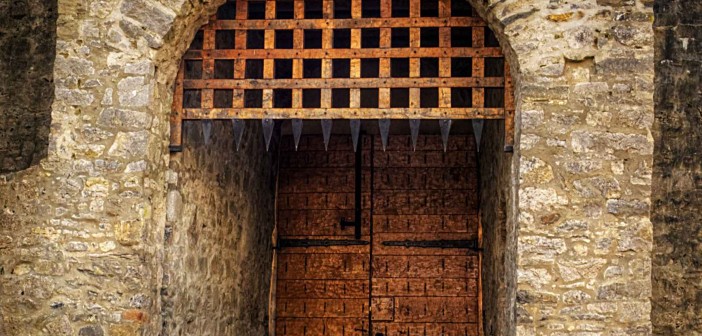I’m not exactly sure why, but my daughter loves horses. It’s not like we’ve ever owned one, and she doesn’t know how to ride well, but she has some definite interest. She loves them so much so that she moved down to Florida last summer to work at a few stables. The pay wasn’t exactly stellar, so I guess it was more of a learning adventure. She now has a part-time job at a small stable for rent type of place where she feeds and cares for horses. I couldn’t get her to feed the dog, but call it a steed and she’s glad to oblige. One day when talking about future plans, she mentioned that she was interested in starting a boarding stable. I know nothing about boarding horses, but I do know some things about finances, so I felt a teaching moment was upon us, so I took it.
For all of you parents or future parents out there, do not, and I repeat do not be the person that dashes your daughter’s hopes on the jagged rocks of reality. It really upsets them and for some reason they don’t thank you after you explain to them financial lunacy of owning a stable in utter detail. She gave me a new title that starts with “A” and that’s not the beginning of awesome.
So this is a post on how to crush your daughter’s dream of owning a boarding stable in the country.
I’ve lived in a few small towns in New England for about 15 years—rural living at its finest—and there are quite a bit of farms and on those farms they have barns, and horses go in barns. Pretty easy logic so far. One interesting part of rural living is that very few people have a mortgage; that 10 acre lot has been in the family going back generations, which was most likely split off the larger piece of property from their grandparents. The barn was built back in the day when barn raising parties were all the rage, back when family reunions were considered good opportunities to pick up a wife and you didn’t drive a 67 Mustang, you rode a 6–7 year old Mustang. To say the least, everything is long paid for and there have been no payments to the bank for generations.
My daughter has no land that’s been passed down through the generations, so she would have to pop for a few acres and drop a barn on it. Just for easy math we’re going to say she can get the whole setup for $500K, which she can borrow for 5%. Her monthly payment will be about $2,700 a month on her horse ranch. I’m winging the numbers here a little, but to board a horse in Maine runs about $500 a month and costs run about $400 a month, which leaves $100 per horse per month or $1,200 a year. Just for her to break even she would need 27 horses. She was only planning on having about 20, so we have a little problem here. People love their horses, but I’m guessing to get them to switch from one place to another that costs more is pretty much impossible. She would lose $700 a month, which in a moment of stupidity on my part jubilantly declared I would not pay.
Of course there are lots of other things it takes to have a horse stable, and for most of them we worked through a feasible solution, but that unencumbered land and barn is pretty hard to get around. That is the barrier to entry. It is the thing you really have to do to get into the industry and in her case not having free land and a barn is pretty much the deal breaker.
Small business is full of barriers to entry. For the most part they are not insurmountable. Maybe you’ll need a business license, maybe a restaurant permit, or some sort of certification from the state.
Whatever your plans are, you might want to take a trip down to city hall and do a little checking before you go spending time and resources towards your dream (no matter how mundane it might sound). Towns and cities have quotas too; if they have too many restaurants, bars, food trucks, or whatever, they limit permits.
Thinking about owning a bar? A liquor license is worth its weight in gold, and depending on where you’re looking to set up, there might be a limited number or too many bars where you’re located, so you get to wait. It’s really hard to be a bar without a liquor license.
How about a food truck? You’ll need about a half a dozen permits, but because cities and towns don’t make nearly as much tax revenue from a food truck, so those are pretty scarce. Plus, regular brick and mortar business complain to the city about the unfair advantage food trucks have, since brick and mortar’s pay more taxes, so guess who wins.
I’m just focusing on permits right now, but those are pretty important. Your barrier can be different. Often it’s a big pile of cash, which is what’s keeping me from developing my Mars tourism company. It can be something simple like getting a certification. (Who knew you need to pass the state bar exam before you can start a law firm?) It might be as simple as insurance. You can’t operate a limo service without it, and yes it’s really expensive. These are all examples of barriers to entry that you need to consider when planning out your business.
There’s the other side of the coin. Once you get over that barrier it now becomes a barrier to entry for the next guy. It’s a unique way to look at it. Who do you think has more influence over how many liquor licenses are issued: local moms or other bar owners? I love moms too, but they don’t pay nearly the amount of taxes bars do to the local government. Money talks, mommies walk, sorry to say. Don’t believe me? If you have a Chamber of Commerce go to one of the meetings, such as a monthly breakfast or something, and you’ll get educated real fast. It’s a game, and the first rule of any game is realizing you’re in it.
The other thing to keep in mind is that the lower the barrier to entry, the less money to be made (generally speaking). Think about the bar owners above—they’re not bribing the city, they’re just pointing out that taxes are paid on profit. And if there are too many bars, nobody makes a profit and the city gets no money. If there’s no money and the crossing guards near the school need to be laid off, this upsets the mommies. See, mommies need bars, and they need to be profitable. It’s all causation.
Just something to keep in mind: if it’s an easy industry for you to get into, it’s an easy industry for anyone to get into, and the next guy will do it for less money. Economic profit will always go to zero.
While planning your future endeavor, realize there is no substitute for due diligence. No matter what industry you’re looking at, do yourself a favor and start doing the research now. Define those barriers to entry and don’t be afraid to ask every question twice. Get a meeting with the mayor or the local chamber of commerce and tell them what your plans are. Go out and kick the tires and make sure there is no rock unturned, and of course, trust in God, but get it in writing from everybody else. The last thing you need is to have your dream be put on hold because of one little thing, that of course turns out to be a big thing.
When I explain it like that maybe the “A” can be the beginning of Awesome….or maybe not.




